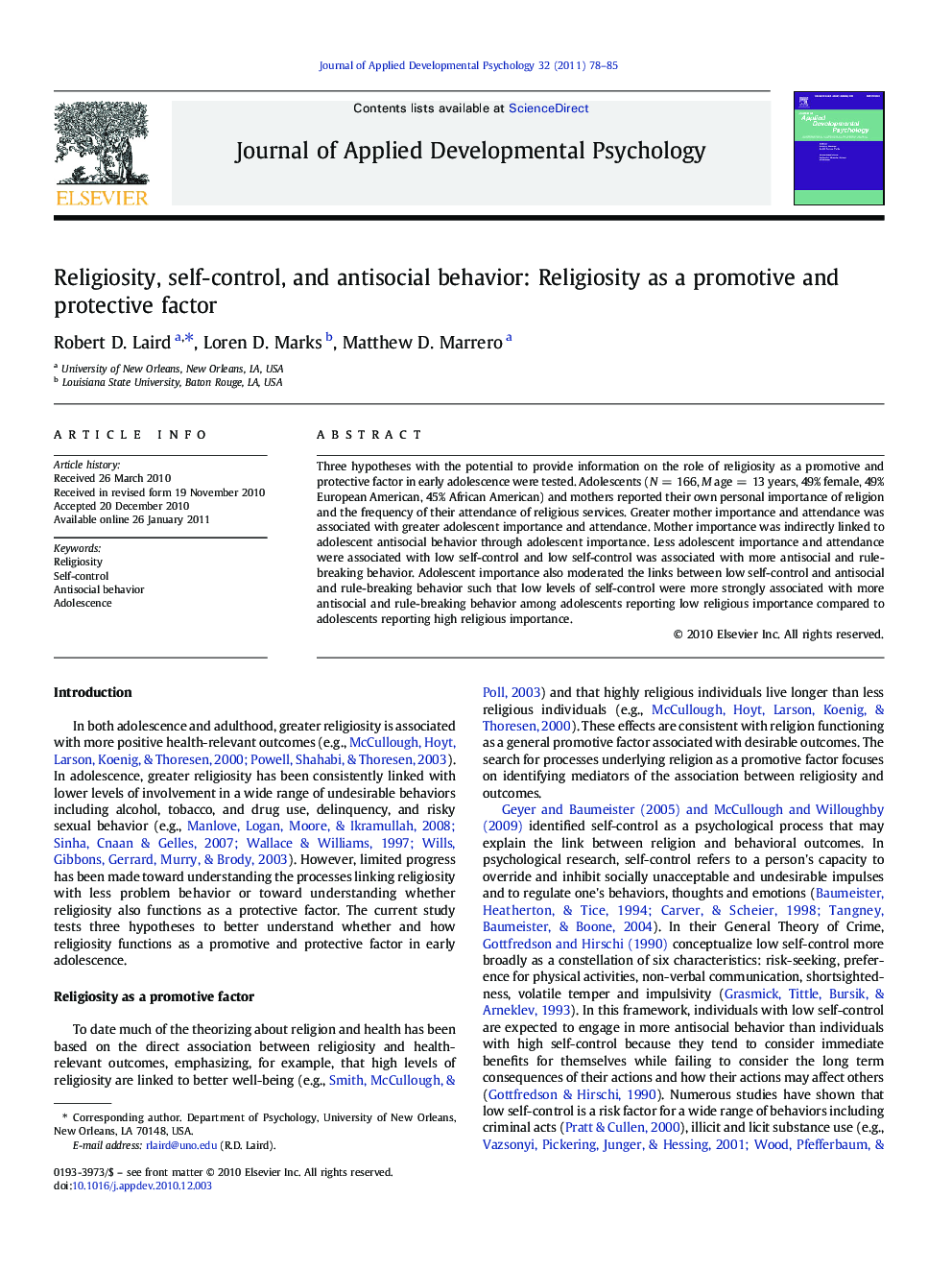| Article ID | Journal | Published Year | Pages | File Type |
|---|---|---|---|---|
| 359887 | Journal of Applied Developmental Psychology | 2011 | 8 Pages |
Three hypotheses with the potential to provide information on the role of religiosity as a promotive and protective factor in early adolescence were tested. Adolescents (N = 166, M age = 13 years, 49% female, 49% European American, 45% African American) and mothers reported their own personal importance of religion and the frequency of their attendance of religious services. Greater mother importance and attendance was associated with greater adolescent importance and attendance. Mother importance was indirectly linked to adolescent antisocial behavior through adolescent importance. Less adolescent importance and attendance were associated with low self-control and low self-control was associated with more antisocial and rule-breaking behavior. Adolescent importance also moderated the links between low self-control and antisocial and rule-breaking behavior such that low levels of self-control were more strongly associated with more antisocial and rule-breaking behavior among adolescents reporting low religious importance compared to adolescents reporting high religious importance.
Research Highlights► Adolescent religiosity tested as promotive and protective factor. ► High religiosity and low self-control linked to less antisocial behavior. ► High religiosity protects low self-control teens from antisocial behavior.
